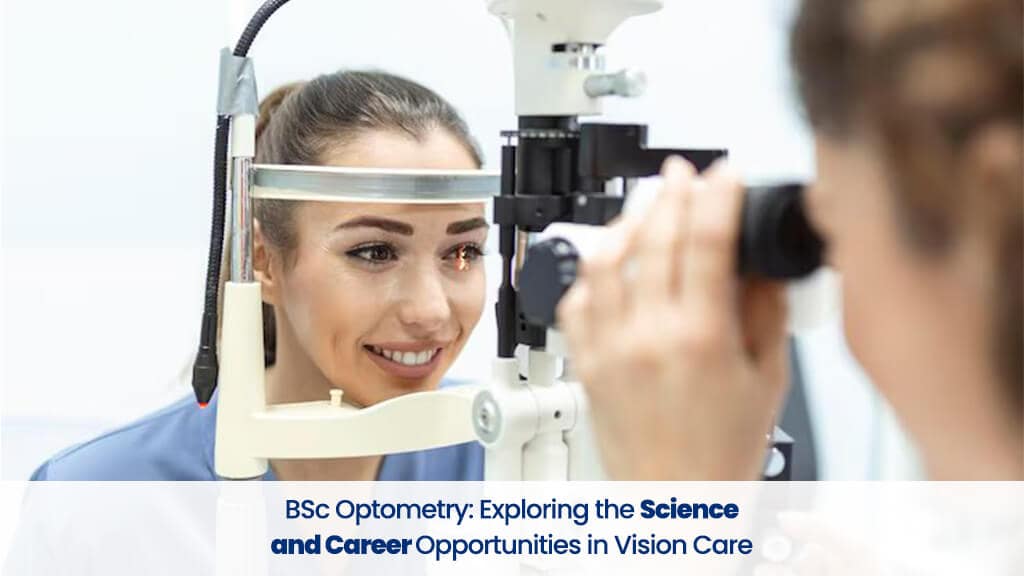BSc Optometry: Exploring the Science and Career Opportunities in Vision Care
BSc Optometry, a degree in Optometry, is a specialized undergraduate program. The course focuses chiefly on the science of eye health, vision care, diagnosis, and treatment of many eye conditions. Professionally trained people in the program are known as Optometrists. These healthcare professionals specialize in the visual system and offer primary eye care services. Here is an overview of what you can expect from a
BSc in Optometry, including the science behind it and the career opportunities in vision care it offers:
Exploration of BSc Optometry
The core curriculum of the course in Optometry usually includes a mixture of theoretical and practical coursework in various areas associated with vision care, including:
Eye Anatomy and Physiology: You can know the basic concepts of the eye’s structure and function.
Visual Optics: You will learn about how light interacts with the eye, including lens design and refraction.
Optical Diseases: You will study the diagnosis and treatment of common eye disorders, such as cataracts, glaucoma, and macular degeneration.
Clinical Optometry: Gaining practical experience in eye tests and prescription of contact lenses and eyeglasses, besides the administration of vision problems.
Binocular Vision: You will explore the combined working mechanism of both eyes and address issues, such as crossed eyes or strabismus and lazy eye or amblyopia.
Pharmacology: You can know the use of medicines in eye care and their results.
BSc Optometry programs often comprise clinical rotations where pupils work in eye hospitals or optometry practices under the administration of licensed optometrists. It offers them real-world experience in patient care. Some research programs in Optometry also emphasize the study of vision science. It allows students to explore specific areas of interest within the optometry field.
Career Opportunities offered by BSc Optometry in Vision Care
BSc in Optometry provides qualified students with various career opportunities after getting the necessary license. These opportunities include:
Optometrist: The most common career path for optometry graduates is becoming a licensed optometrist. Optometrists perform eye examinations, diagnose eye conditions, and prescribe glasses or contact lenses. They also manage and treat various eye diseases and refer patients to specialists when needed.
Specializations: Optometrists can specialize in areas such as pediatric optometry, geriatric optometry, sports vision, or low vision rehabilitation, allowing them to work with specific patient populations or address unique vision needs.
Research and Education: Some optometrists pursue careers in research or academia, working at universities or research institutions to advance the field of optometry and educate future optometrists.
Private Practice: Many optometrists open their private practices, offering comprehensive eye care services to their communities. It allows for independence and entrepreneurial opportunities.
Hospital or Healthcare Settings: Optometrists can work in hospitals, clinics, or multidisciplinary healthcare teams, collaborating with other healthcare professionals to provide comprehensive patient care.
Industry Roles: Some optometrists work in the eyewear or pharmaceutical industry, contributing to product development, research, and marketing.
Consulting: Optometrists with specialized expertise may work as consultants for government agencies, insurance companies, or healthcare organizations.
Final word
Generally, BSc Optometry programs offer a strong footing in vision care and open doors to a gratifying and varied range of career options within the eye care and healthcare domain.

















0 Comment